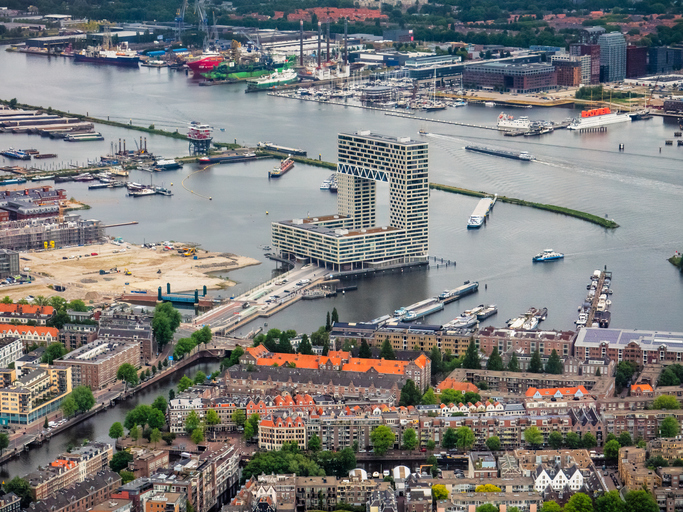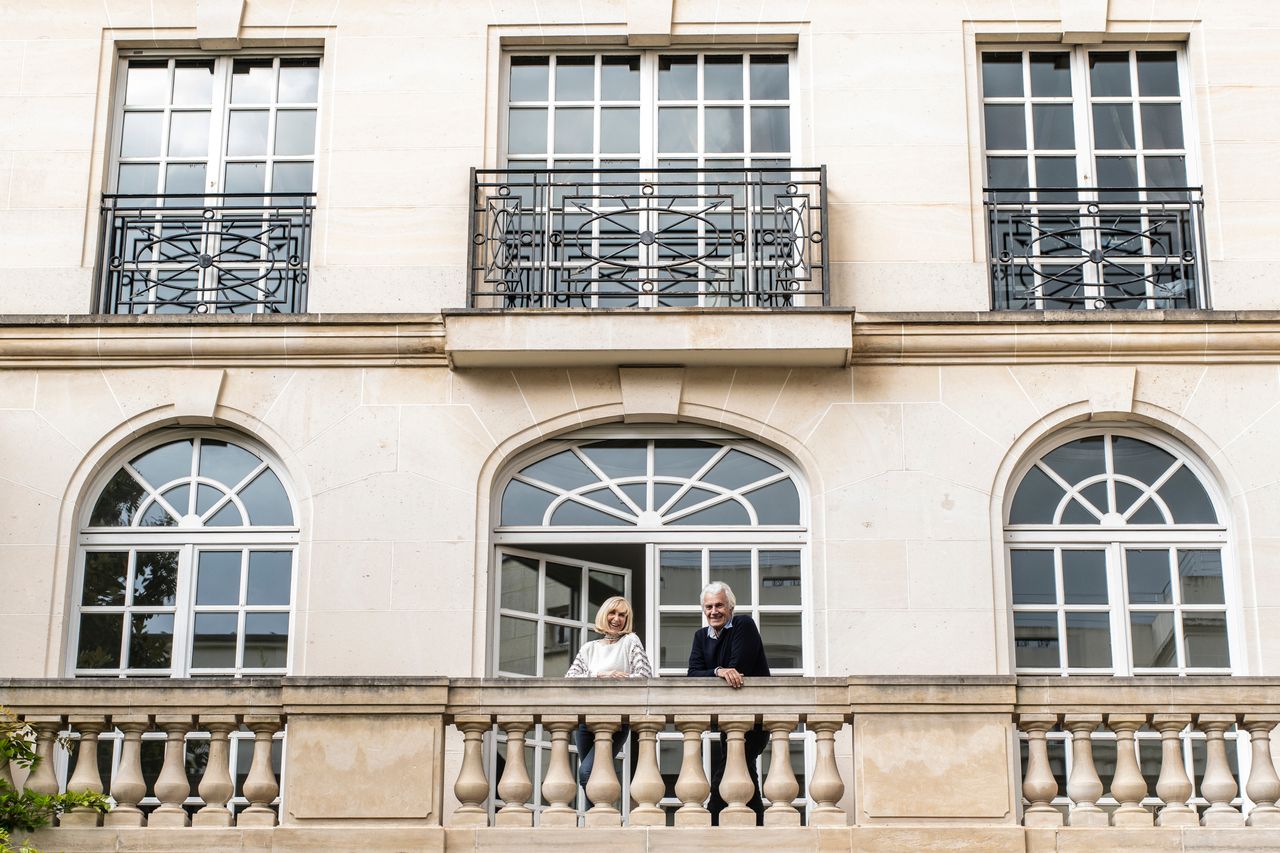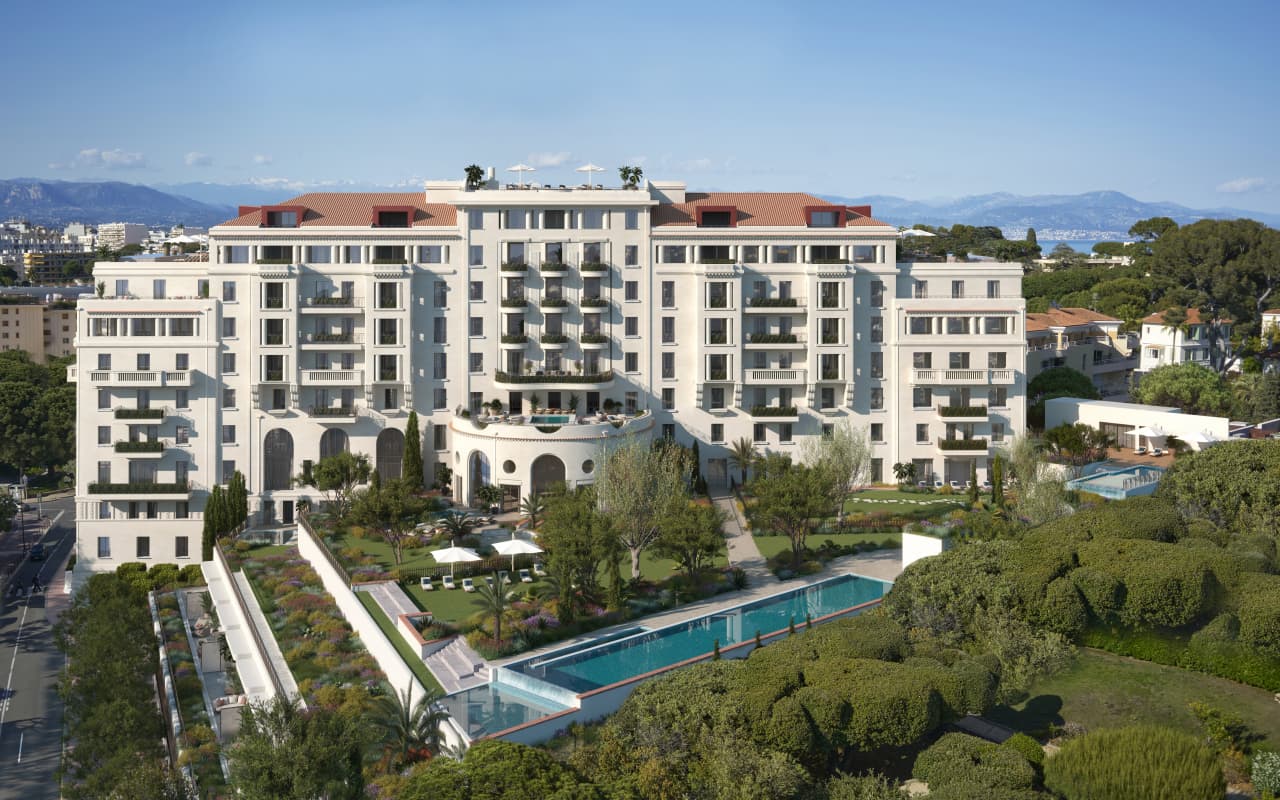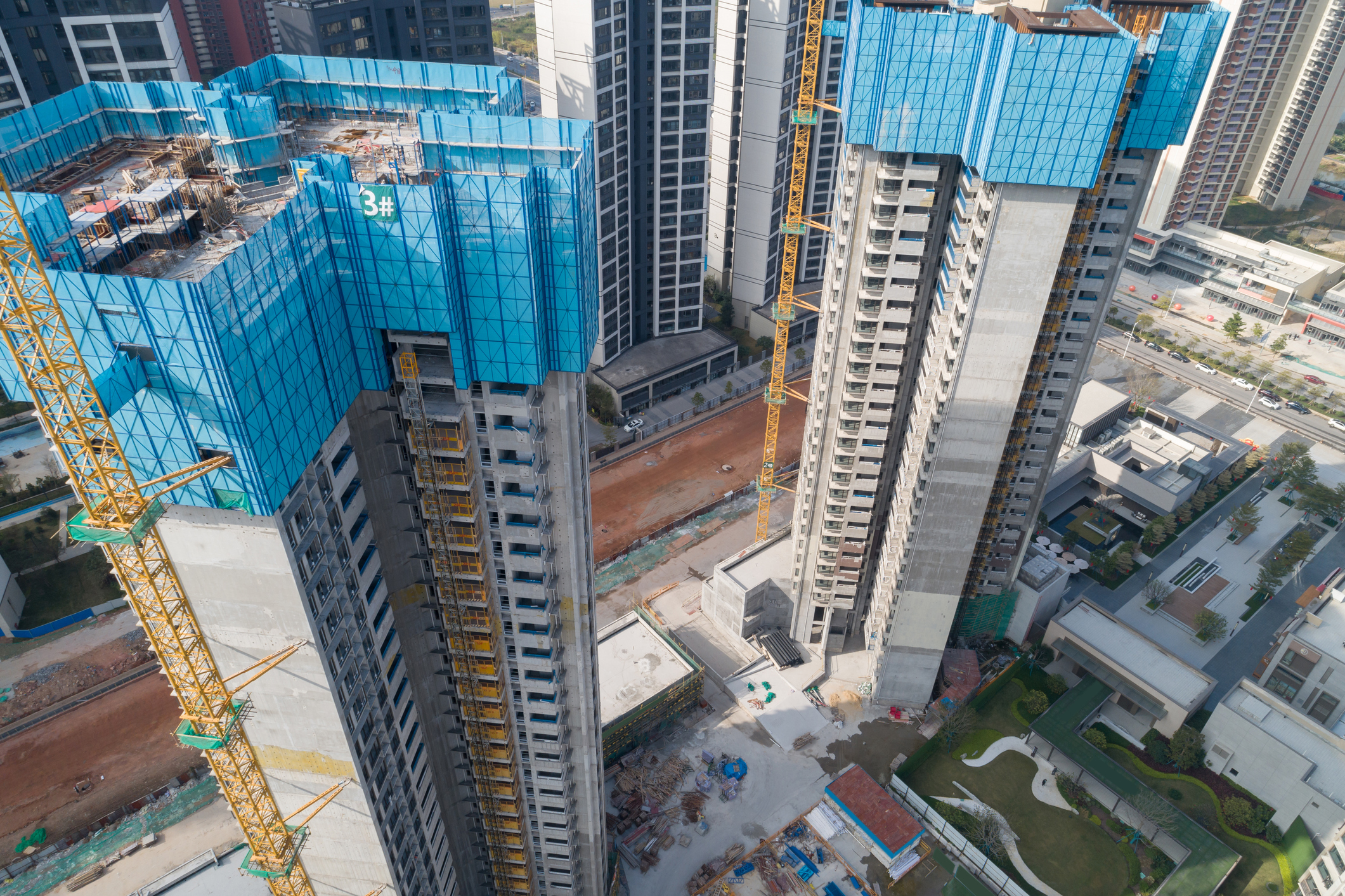House Prices Are Inflating Around The World
Pandemic-related stimulus and ultralow rates are turbocharging markets from Europe to Asia.
As the U.S. housing market booms, a parallel rise in residential real-estate prices across the world from Amsterdam to Auckland is raising fears of possible bubbles and prompting some governments to intervene to prevent their markets from overheating.
Policy makers were already worried about high property prices in parts of Europe, Asia and Canada before the pandemic, especially as years of low-interest rates kept demand strong.
But now the trillions of dollars of stimulus deployed worldwide to fight the effects of Covid-19, along with changes in buying patterns as more people work from home, are turbocharging markets further.
That is putting policy makers in a bind. Many want to keep interest rates low to sustain the post-pandemic recovery, but they worry about people taking on too much debt to buy houses whose prices could stagnate or fall later. Other tools they have to cool demand, like tighter mortgage restrictions, aren’t always working, or are being postponed as authorities try to ensure broader economic growth stays on track.
The Danish central bank recently warned that cheap financing and savings that expanded during the pandemic could lead to people taking on more debt to purchase houses and property prices spiralling upward.
“It is clear that rising [house] prices of between 5% and 10% annually, depending on the market we are talking about, are not sustainable in the long run,” said Karsten Biltoft, assistant governor at the central bank.
In China, regulators have tried tamping down property markets to cool what one senior banking official referred to as a “bubble,” to little avail. Property prices are up 16% over the past year in the city of Shenzhen, for example. In New Zealand, authorities recently tightened mortgage lending standards, with median home prices climbing 23% in February from a year earlier to a record.
In Sydney, where property prices also recently hit records, new mortgage demand is so high that some banks are struggling to keep up, said Christian Stevens, senior credit adviser at mortgage brokerage Shore Financial. Turnaround times for processing mortgage applications have increased from a few days to more than a month in some cases.
“It’s crazy,” he said. “We’ve never been this busy or seen this much inquiry. And it doesn’t look like it’s slowing down anytime soon.”
In the 37 wealthy countries that make up the Organization for Economic Cooperation and Development, home prices hit a record in the third quarter of 2020, according to OECD data. Prices rose almost 5% on the year, the fastest in nearly 20 years.
The U.S. has also seen strong house price appreciation, though economists generally aren’t too worried. Compared with previous periods of housing-market exuberance, buyers have higher credit ratings and are putting down more cash upfront on purchases.
Economists see similar silver linings elsewhere, making a replay of the global 2008 housing crash, which sent the world into recession, unlikely. Hot markets could cool naturally without wider damage as interest rates rise and pent-up demand is met. As in the U.S., much of the buying globally is being driven by real demand rather than speculation, with families looking to upgrade to larger properties in suburban areas as they work more from home.
“There’s been this almost global reset as people have taken a step back during lockdown periods and reassessed their lifestyle,” said Kate Everett-Allen, head of international residential research at Knight Frank.
Strong home-price appreciation also makes homeowners feel wealthier and encourages more spending and construction, as developers build more supply.
However, with equities prices also at or near record highs, some officials are worried that vast amounts of stimulus are pushing asset prices to unsustainable levels in some global cities, which could lead to local market corrections.
The Dutch central bank told The Wall Street Journal that one concern is that sharp property price increases could be forcing households to take on excessive risk to finance home purchases. Prices in the Netherlands, where there is also a housing supply crunch, rose 7.8% last year, after a 6.9% rise in 2019, according to analysts at ING Groep.
Canada’s central bank governor, Tiff Macklem, said in February there were early signs of “excess exuberance” in the Canadian housing market, with prices up 17% on an adjusted basis over a one-year period, according to the Canadian Real Estate Association. Mr. Macklem said officials would be monitoring the situation closely, but dismissed taking measures to rein in sales, saying the economy needed all the support it could get.
Governments say they are also worried about pricing more families out of the market, which could exacerbate economic imbalances that have worsened during the pandemic and potentially drive younger people to put off having children.
In Seoul, where house prices at one point last year were up nearly 15% on an annualized basis, some couples are postponing registering marriages in the hope of making it easier to buy homes. Income thresholds for low-interest mortgages in South Korea are more generous for individuals than couples.
In New Zealand, Sam Hindle, 29, says he and his wife bid on six houses and were rejected for all of them because of competition from other buyers, and eventually agreed to buy a house off-market from a friend.
“It’s just been a nightmare,” said Mr. Hindle, who works in a bank call centre and lives about a four-hour drive from Auckland.
Government officials recently told New Zealand’s central bank that it must consider the impact its policy decisions have on housing, though doing so could complicate rate-setting. The central bank also restricted the volume of high-risk mortgages banks can offer.
Last year, China put new limits on developer financing in the hope of cooling housing prices, but the market has remained frothy. In early March, the chairman of China’s main banking regulator said he was worried about a possible correction in home prices, which could threaten banks’ stability.
Europe’s housing prices have kept climbing despite a much bleaker economic outlook than in the U.S. or China. In part that is because governments have kept supporting families with salary subsidies and moratoriums on loan repayments. It is also because interest rates remain extraordinarily low, with mortgage rates averaging 1.35% across the eurozone.
In Denmark, mortgage holders have been able to borrow money at negative interest, meaning borrowers only pay the bank an administration fee. Negative interest in their favor either gets discounted from the fee or deducted from their mortgage principal.
Michael Stausholm, a Copenhagen real-estate agent, said he has sold 45 homes in less than three months this year, putting him on track to beat last year’s record of 161 sales, despite Covid-19 restrictions.
“A lot of people want to put their money in brick,” Mr. Stausholm said.
Pre-pandemic, the Dutch central bank ruled that banks would need to hold more capital to cover potential losses in mortgage-loan portfolios, but implementation was postponed because of Covid-19. The central bank has also called for the government to gradually phase out tax incentives for homeowners, including mortgage-interest deductions.
Mick ten Bosch, a real-estate agency owner in Amsterdam, said he had 450 people trying to view one house last year, compared with an average of 20 pre-pandemic. This year is even busier, with houses selling for 15% to 20% above asking price, he added.
Teun Kraaij, a 34-year-old entrepreneur, bought a house in an area by the beach near Amsterdam with more space for his two children. While he had enough money to pay the full purchase price outright, his banker advised him to take a mortgage with a 1.2% interest rate.
“It’s so cheap to borrow money nowadays, it doesn’t make sense not to do it,” Mr. Kraaij said.
Reprinted by permission of The Wall Street Journal, Copyright 2021 Dow Jones & Company. Inc. All Rights Reserved Worldwide. Original date of publication: March 28, 2021.
 Copyright 2020, Dow Jones & Company, Inc. All Rights Reserved Worldwide. LEARN MORE
Copyright 2020, Dow Jones & Company, Inc. All Rights Reserved Worldwide. LEARN MORE
This stylish family home combines a classic palette and finishes with a flexible floorplan
Just 55 minutes from Sydney, make this your creative getaway located in the majestic Hawkesbury region.
Ahead of the Games, a breakdown of the city’s most desirable places to live
PARIS —Paris has long been a byword for luxurious living. The traditional components of the upscale home, from parquet floors to elaborate moldings, have their origins here. Yet settling down in just the right address in this low-rise, high-density city may be the greatest luxury of all.
Tradition reigns supreme in Paris real estate, where certain conditions seem set in stone—the western half of the city, on either side of the Seine, has long been more expensive than the east. But in the fashion world’s capital, parts of the housing market are also subject to shifting fads. In the trendy, hilly northeast, a roving cool factor can send prices in this year’s hip neighborhood rising, while last year’s might seem like a sudden bargain.
This week, with the opening of the Olympic Games and the eyes of the world turned toward Paris, The Wall Street Journal looks at the most expensive and desirable areas in the City of Light.
The Most Expensive Arrondissement: the 6th
Known for historic architecture, elegant apartment houses and bohemian street cred, the 6th Arrondissement is Paris’s answer to Manhattan’s West Village. Like its New York counterpart, the 6th’s starving-artist days are long behind it. But the charm that first wooed notable residents like Gertrude Stein and Jean-Paul Sartre is still largely intact, attracting high-minded tourists and deep-pocketed homeowners who can afford its once-edgy, now serene atmosphere.
Le Breton George V Notaires, a Paris notary with an international clientele, says the 6th consistently holds the title of most expensive arrondissement among Paris’s 20 administrative districts, and 2023 was no exception. Last year, average home prices reached $1,428 a square foot—almost 30% higher than the Paris average of $1,100 a square foot.
According to Meilleurs Agents, the Paris real estate appraisal company, the 6th is also home to three of the city’s five most expensive streets. Rue de Furstemberg, a secluded loop between Boulevard Saint-Germain and the Seine, comes in on top, with average prices of $2,454 a square foot as of March 2024.
For more than two decades, Kyle Branum, a 51-year-old attorney, and Kimberly Branum, a 60-year-old retired CEO, have been regular visitors to Paris, opting for apartment rentals and ultimately an ownership interest in an apartment in the city’s 7th Arrondissement, a sedate Left Bank district known for its discreet atmosphere and plutocratic residents.
“The 7th was the only place we stayed,” says Kimberly, “but we spent most of our time in the 6th.”
In 2022, inspired by the strength of the dollar, the Branums decided to fulfil a longstanding dream of buying in Paris. Working with Paris Property Group, they opted for a 1,465-square-foot, three-bedroom in a building dating to the 17th century on a side street in the 6th Arrondissement. They paid $2.7 million for the unit and then spent just over $1 million on the renovation, working with Franco-American visual artist Monte Laster, who also does interiors.
The couple, who live in Santa Barbara, Calif., plan to spend about three months a year in Paris, hosting children and grandchildren, and cooking after forays to local food markets. Their new kitchen, which includes a French stove from luxury appliance brand Lacanche, is Kimberly’s favourite room, she says.
Another American, investor Ashley Maddox, 49, is also considering relocating.
In 2012, the longtime Paris resident bought a dingy, overstuffed 1,765-square-foot apartment in the 6th and started from scratch. She paid $2.5 million and undertook a gut renovation and building improvements for about $800,000. A centrepiece of the home now is the one-time salon, which was turned into an open-plan kitchen and dining area where Maddox and her three children tend to hang out, American-style. Just outside her door are some of the city’s best-known bakeries and cheesemongers, and she is a short walk from the Jardin du Luxembourg, the Left Bank’s premier green space.
“A lot of the majesty of the city is accessible from here,” she says. “It’s so central, it’s bananas.” Now that two of her children are going away to school, she has listed the four-bedroom apartment with Varenne for $5 million.
The Most Expensive Neighbourhoods: Notre-Dame and Invalides
Garrow Kedigian is moving up in the world of Parisian real estate by heading south of the Seine.
During the pandemic, the Canada-born, New York-based interior designer reassessed his life, he says, and decided “I’m not going to wait any longer to have a pied-à-terre in Paris.”
He originally selected a 1,130-square-foot one-bedroom in the trendy 9th Arrondissement, an up-and-coming Right Bank district just below Montmartre. But he soon realised it was too small for his extended stays, not to mention hosting guests from out of town.
After paying about $1.6 million in 2022 and then investing about $55,000 in new decor, he put the unit up for sale in early 2024 and went house-shopping a second time. He ended up in the Invalides quarter of the 7th Arrondissement in the shadow of one Paris’s signature monuments, the golden-domed Hôtel des Invalides, which dates to the 17th century and is fronted by a grand esplanade.
His new neighbourhood vies for Paris’s most expensive with the Notre-Dame quarter in the 4th Arrondissement, centred on a few islands in the Seine behind its namesake cathedral. According to Le Breton, home prices in the Notre-Dame neighbourhood were $1,818 a square foot in 2023, followed by $1,568 a square foot in Invalides.
After breaking even on his Right Bank one-bedroom, Kedigian paid $2.4 million for his new 1,450-square-foot two-bedroom in a late 19th-century building. It has southern exposures, rounded living-room windows and “gorgeous floors,” he says. Kedigian, who bought the new flat through Junot Fine Properties/Knight Frank, plans to spend up to $435,000 on a renovation that will involve restoring the original 12-foot ceiling height in many of the rooms, as well as rescuing the ceilings’ elaborate stucco detailing. He expects to finish in 2025.
Over in the Notre-Dame neighbourhood, Belles demeures de France/Christie’s recently sold a 2,370-square-foot, four-bedroom home for close to the asking price of about $8.6 million, or about $3,630 a square foot. Listing agent Marie-Hélène Lundgreen says this places the unit near the very top of Paris luxury real estate, where prime homes typically sell between $2,530 and $4,040 a square foot.
The Most Expensive Suburb: Neuilly-sur-Seine
The Boulevard Périphérique, the 22-mile ring road that surrounds Paris and its 20 arrondissements, was once a line in the sand for Parisians, who regarded the French capital’s numerous suburbs as something to drive through on their way to and from vacation. The past few decades have seen waves of gentrification beyond the city’s borders, upgrading humble or industrial districts to the north and east into prime residential areas. And it has turned Neuilly-sur-Seine, just northwest of the city, into a luxury compound of first resort.
In 2023, Neuilly’s average home price of $1,092 a square foot made the leafy, stately community Paris’s most expensive suburb.
Longtime residents, Alain and Michèle Bigio, decided this year is the right time to list their 7,730-square-foot, four-bedroom townhouse on a gated Neuilly street.
The couple, now in their mid 70s, completed the home in 1990, two years after they purchased a small parcel of garden from the owners next door for an undisclosed amount. Having relocated from a white-marble château outside Paris, the couple echoed their previous home by using white- and cream-coloured stone in the new four-story build. The Bigios, who will relocate just back over the border in the 16th Arrondissement, have listed the property with Emile Garcin Propriétés for $14.7 million.
The couple raised two adult children here and undertook upgrades in their empty-nester years—most recently, an indoor pool in the basement and a new elevator.
The cool, pale interiors give way to dark and sardonic images in the former staff’s quarters in the basement where Alain works on his hobby—surreal and satirical paintings, whose risqué content means that his wife prefers they stay downstairs. “I’m not a painter,” he says. “But I paint.”
The Trendiest Arrondissement: the 9th
French interior designer Julie Hamon is theatre royalty. Her grandfather was playwright Jean Anouilh, a giant of 20th-century French literature, and her sister is actress Gwendoline Hamon. The 52-year-old, who divides her time between Paris and the U.K., still remembers when the city’s 9th Arrondissement, where she and her husband bought their 1,885-square-foot duplex in 2017, was a place to have fun rather than put down roots. Now, the 9th is the place to do both.
The 9th, a largely 19th-century district, is Paris at its most urban. But what it lacks in parks and other green spaces, it makes up with nightlife and a bustling street life. Among Paris’s gentrifying districts, which have been transformed since 2000 from near-slums to the brink of luxury, the 9th has emerged as the clear winner. According to Le Breton, average 2023 home prices here were $1,062 a square foot, while its nearest competitors for the cool crown, the 10th and the 11th, have yet to break $1,011 a square foot.
A co-principal in the Bobo Design Studio, Hamon—whose gut renovation includes a dramatic skylight, a home cinema and air conditioning—still seems surprised at how far her arrondissement has come. “The 9th used to be well known for all the theatres, nightclubs and strip clubs,” she says. “But it was never a place where you wanted to live—now it’s the place to be.”
With their youngest child about to go to college, she and her husband, 52-year-old entrepreneur Guillaume Clignet, decided to list their Paris home for $3.45 million and live in London full-time. Propriétés Parisiennes/Sotheby’s is handling the listing, which has just gone into contract after about six months on the market.
The 9th’s music venues were a draw for 44-year-old American musician and piano dealer, Ronen Segev, who divides his time between Miami and a 1,725-square-foot, two-bedroom in the lower reaches of the arrondissement. Aided by Paris Property Group, Segev purchased the apartment at auction during the pandemic, sight unseen, for $1.69 million. He spent $270,000 on a renovation, knocking down a wall to make a larger salon suitable for home concerts.
During the Olympics, Segev is renting out the space for about $22,850 a week to attendees of the Games. Otherwise, he prefers longer-term sublets to visiting musicians for $32,700 a month.
Most Exclusive Address: Avenue Junot
Hidden in the hilly expanses of the 18th Arrondissement lies a legendary street that, for those in the know, is the city’s most exclusive address. Avenue Junot, a bucolic tree-lined lane, is a fairy-tale version of the city, separate from the gritty bustle that surrounds it.
Homes here rarely come up for sale, and, when they do, they tend to be off-market, or sold before they can be listed. Martine Kuperfis—whose Paris-based Junot Group real-estate company is named for the street—says the most expensive units here are penthouses with views over the whole of the city.
In 2021, her agency sold a 3,230-square-foot triplex apartment, with a 1,400-square-foot terrace, for $8.5 million. At about $2,630 a square foot, that is three times the current average price in the whole of the 18th.
Among its current Junot listings is a 1930s 1,220-square-foot townhouse on the avenue’s cobblestone extension, with an asking price of $2.8 million.
This stylish family home combines a classic palette and finishes with a flexible floorplan
Just 55 minutes from Sydney, make this your creative getaway located in the majestic Hawkesbury region.






















